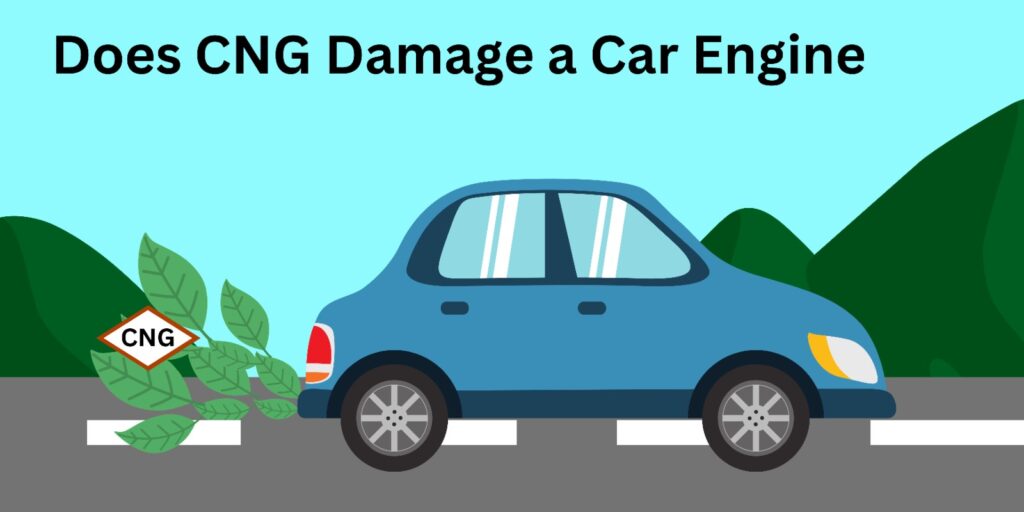

All You Need To Know About CNG in Car Engines
Compressed Natural Gas (CNG) has been gaining popularity as a cleaner and more environmentally friendly alternative to traditional gasoline and diesel fuels. CNG offers several benefits, including reduced emissions, lower fuel costs, and improved air quality. However, there has been ongoing debate and concern about the potential impact of using CNG in car engines. Let’s understand the advantages and potential drawbacks of using CNG.

What is CNG?
Primarily CNG is composed of methane gas compressed to high pressures and used as fuel in vehicles. It is a cleaner-burning alternative to gasoline or diesel. Why so? Because it reduces the emissions of pollutants such as carbon monoxide, nitrogen oxides, and particulate matter. CNG has been embraced worldwide as a more environmentally friendly option, especially in areas with stringent emission regulations.
However, let’s examine the properties of CNG, its effects on engines, and the measures taken to mitigate potential risks.
Potential Benefits Of CNG In Car Engines
- Environmental Benefits: One of the primary advantages of using CNG in car engines is its cleaner combustion process. CNG produces fewer carbon emissions and pollutants when compared to gasoline or diesel. As a result, using CNG can contribute to improved air quality and reduced greenhouse gas emissions. Moreover, the combustion process of CNG is efficient and typically leads to reduced carbon buildup on engine components. Hence, this results in lesser damage to the engine over time.
- Cost Savings: Another benefit of using CNG in car engines is affordability. CNG is generally cheaper than gasoline or diesel on a per-energy-unit basis. This results in significant cost savings for vehicle owners, especially those who drive extensively.
- Engine Longevity: A cleaner combustion process and reduced carbon buildup can keep the engine components, such as valves and spark plugs, well maintained over time. This process reduces wear and tear on the engine over time, potentially extending its lifespan.
Potential Concerns and Mitigation Of CNG In Car Engines
- Combustion Characteristics: One of the primary concerns related to CNG in car engines is its combustion characteristics. This fuel has different combustion characteristics compared to gasoline. CNG has a high octane rating, which can result in a more controlled and efficient combustion process compared to gasoline. However, improper engine calibration can lead to incomplete combustion, poor efficiency, and increased engine wear.
- Lower Energy Density: CNG has a lower energy density than gasoline, so a larger volume of CNG is required to produce the same power as gasoline. As a result, vehicles running on CNG may experience reduced power and performance. However, modern CNG engines can accommodate these differences.
- Engine Design and Compatibility: CNG operates differently from gasoline or diesel, and these engines are well-equipped to handle the unique combustion characteristics of the fuel. Moreover, retrofitting a gasoline engine to run on CNG without proper modifications can potentially lead to engine damage over time. It includes changes to the fuel injection system, ignition timing, and engine control unit (ECU) programming. Factory-built CNG vehicles, or professionally converted ones, are more likely to be compatible.
Engine Modifications:
One of the cardinal considerations when using CNG in car engines is the need for engine modifications. CNG operates at a higher compression ratio than gasoline, which requires a change in the fueling system. So, CNG-specific fuel injectors, high-pressure fuel lines, and storage tanks must be fitted in vehicles. If not done, the engine may not run optimally and could experience damage due to incorrect fuel-air ratios.
Conversion Kits:
Aftermarket conversion kits are available for retrofitting existing gasoline-powered vehicles to run on CNG. The kits include the necessary components to modify the engine for CNG use- storage cylinders, fuel injectors, and electronic controls. Though these kits can make vehicles CNG-compatible, they must get installed by professionals well-versed in CNG systems. Incorrect installations or low-quality components can lead to fuel leaks, engine misfires, and other performance issues.

Conclusion
Properly designed CNG systems, correct engine modifications, and diligent maintenance are unlikely to cause significant damage to car engines. With these factors into account, CNG has the potential to be a cleaner and economically viable alternative to traditional gasoline or diesel fuels. Furthermore, conducting thorough research, consulting with experts, and choosing reputable manufacturers and conversion specialists ensure a safe and effective transition. Currently, CNG-powered vehicles are becoming more sophisticated and reliable with advancements in engine technology. Also, the risk of engine damage gets minimized when CNG vehicles are so built or modified to run on this fuel type.

FAQ’s
- Which type of vehicle mostly use CNG?
Public transport like buses, auto rickshaws, and cars (cabs) mostly use CNG.
- Why do most public transport use CNG?
Many state governments have adopted the use of CNG vehicles as it is a clean, affordable, and environment-friendly mode of transportation.
- What is the lifespan of CNG cars?
CNG cars can last 15-20 years with regular maintenance of cylinders and timely replacement of their parts.
Related Blog: 10 Signs of a Weak Car Engine
